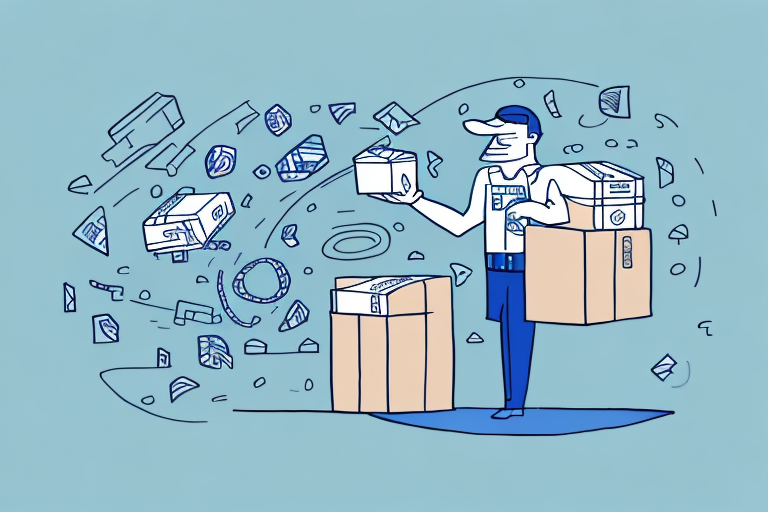Understanding Independent Contractor Courier Jobs
As the gig economy continues to thrive, the demand for independent contractor couriers has been steadily increasing. Independent contractor courier jobs are typically short-term, and the pay for these jobs can vary significantly based on several factors. Generally, independent contractor couriers are paid per job or per mile, but other elements also play a crucial role in determining their compensation.
What is an Independent Contractor Courier?
Independent contractor couriers are individuals who deliver goods and packages to customers on behalf of various companies seeking delivery services. They are in high demand for services such as food delivery, package delivery, and transportation of various products.
As independent contractors, courier drivers are not considered employees of the companies they work for. This classification means they are responsible for their own expenses, including gas, maintenance, and insurance. However, they enjoy the flexibility to choose their own working hours and routes, and can work for multiple companies simultaneously. Independent contractor couriers play a vital role in the gig economy, offering flexible and convenient delivery services to customers worldwide.
Compensation and Earnings
How Independent Contractor Couriers are Paid
Independent contractor couriers are typically compensated on a per-job basis, receiving a set amount for each delivery they complete. Some companies may also offer payment per mile driven or a flat fee for a specific time period. Payment methods can vary by employer, ranging from cash payments to online services like PayPal or Venmo.
It's important to note that independent contractor couriers are responsible for their own taxes and expenses. They must track their earnings and deduct necessary expenses, such as gas and vehicle maintenance, from their income. Additionally, some companies may require couriers to provide their own equipment, such as a bike or car, which can impact their overall expenses.
Factors that Affect Pay
Several factors influence the pay of independent contractor couriers, including:
- Location: Urban areas with higher demand for delivery services often offer better pay.
- Type of Goods: Delivering specialized or high-value items can command higher compensation.
- Demand: High-demand periods, such as holidays or peak meal times, can lead to increased earnings.
- Work Hours: Couriers who work during peak hours or on weekends may earn more.
- Delivery Distance: Longer delivery routes can result in higher pay due to increased time and effort.
- Experience: More experienced couriers may negotiate higher rates based on their reliability and efficiency.
Additionally, the mode of transportation can impact earnings. Couriers using their own vehicles may receive higher pay than those using bicycles or motorcycles due to the associated maintenance and fuel costs.
The time of day can also affect pay rates. Deliveries made during rush hours or other peak times may offer higher compensation due to increased demand, whereas off-peak hours might offer lower pay.
Pros and Cons of Being an Independent Contractor Courier
Being an independent contractor courier offers several benefits, including flexible hours, the ability to work independently, and the potential to earn a substantial income. Couriers can choose their own clients and work with a variety of businesses, leading to diverse experiences and opportunities to build relationships with different companies. Additionally, independent contractors have the autonomy to set their own rates and negotiate with clients, which can lead to higher earnings.
However, there are drawbacks to this line of work. Independent contractor couriers do not receive benefits such as health insurance or paid time off, and taxes are not withheld by the company. They are also responsible for their own expenses, including vehicle maintenance and fuel costs, which can significantly impact their net earnings.
Furthermore, the nature of independent contractor work can lead to inconsistent income and periods of financial instability, especially during times when there are fewer delivery opportunities available.
Maximizing Your Earnings
How to Negotiate Your Pay
Independent contractor couriers have the ability to negotiate their pay with employers or potential customers. It's essential to research the average pay rate in your area to understand your market value. Advocating for yourself and showcasing your skills can lead to better compensation. Providing quality service and building strong relationships with clients can also result in higher pay and more work opportunities.
Consider the type of delivery service you provide when negotiating your pay. Specialized deliveries that require specific skills or equipment can justify higher rates. Additionally, being willing to work during peak hours or on weekends can give you leverage to negotiate higher pay for those time slots. Clearly communicating your availability and any unique skills or equipment you offer can strengthen your position in negotiations.
Tips to Maximize Your Earnings
To maximize earnings as an independent contractor courier, efficiency is key. Ensure your vehicle is well-maintained and fuel-efficient to reduce operating costs. Utilizing technology such as GPS can help optimize routes, saving time and increasing the number of deliveries you can complete.
Providing excellent customer service can lead to repeat business and positive reviews, which can enhance your reputation and attract more clients. Building relationships with repeat customers ensures a steady stream of work and can lead to higher-paying opportunities.
Expanding your services to include options like same-day or rush deliveries can increase demand for your services and potentially lead to higher earnings. Partnering with local businesses or online marketplaces can also help grow your customer base and secure more consistent work. Continuously seeking new opportunities and maintaining high service standards are essential for maximizing earnings and building a successful career in the delivery industry.
Common Challenges and How to Overcome Them
Common Mistakes to Avoid
Independent contractor couriers can encounter several common mistakes that may hinder their success and income. One such mistake is not being adequately prepared for deliveries, which can result in delays and dissatisfied customers. Effective time management is crucial to ensure timely deliveries and maximize the number of jobs completed each day.
Providing poor customer service can lead to negative reviews and a decrease in repeat business. It's important to maintain professionalism and communicate effectively with clients to build trust and ensure customer satisfaction.
Another frequent mistake is failing to keep accurate records of expenses and income. Properly tracking all expenses related to your work, such as gas, maintenance, and insurance, is essential for calculating profits and preparing for tax obligations. Accurate record-keeping also ensures that you can take advantage of eligible tax deductions, reducing your overall tax burden.
Staying updated with the latest technology and tools can significantly improve your efficiency. Utilizing GPS navigation systems, mobile apps for tracking deliveries, and online platforms for managing your schedule and payments can streamline your operations and enhance your performance as a courier.
Understanding Your Taxes
As an independent contractor, taxes are not automatically deducted from your earnings. Independent contractor couriers are responsible for calculating and paying their own taxes, which requires careful financial planning. It's essential to track all work-related expenses, such as mileage, vehicle maintenance, and insurance, as these can be deducted from your taxable income.
You may also be eligible for other tax deductions, such as home office expenses if you manage your deliveries from a home base. Consulting with a tax professional can help ensure you are maximizing your eligible deductions and complying with all tax regulations.
To avoid penalties, it's important to set aside a portion of your earnings to cover your tax obligations throughout the year. Making estimated tax payments on a quarterly basis can help manage your tax liability and prevent large, unexpected tax bills during filing season.
Legal Considerations
Legal Issues Surrounding Pay
One significant legal issue faced by independent contractor couriers is the classification of their employment status. Misclassification as an independent contractor versus an employee can lead to disputes over pay and benefits. It's crucial to understand your classification and rights under federal and state laws to ensure you are being compensated fairly.
Another legal consideration is adherence to minimum wage laws. While federal law does not mandate minimum wage for independent contractors, some states have specific regulations that apply. Couriers should familiarize themselves with the minimum wage laws in their respective states to ensure compliance and protect their earnings.
Additionally, independent contractor couriers should be aware of licensing requirements, insurance obligations, and other regulatory standards that may apply to their work. Maintaining compliance with all legal requirements is essential to avoid fines, legal disputes, and interruptions to your delivery services.
Finding High-Paying Opportunities
How to Find High-Paying Gigs
Securing high-paying gigs as an independent contractor courier can be competitive, but several strategies can enhance your chances of obtaining lucrative opportunities. Utilizing job boards and online marketplaces dedicated to delivery services can connect you with potential clients seeking reliable couriers.
Networking with local businesses, restaurants, and retail stores can also lead to high-paying gigs. Building a solid reputation for reliability and quality service can result in referrals and repeat business, contributing to higher earnings.
Specializing in specific types of deliveries, such as medical or legal documents, can command higher pay rates due to the specialized nature of the work. Additionally, offering premium services like same-day or rush deliveries can increase your earning potential by catering to clients who require expedited delivery solutions.
Maintaining an active online presence through platforms like LinkedIn or creating a professional website can attract more clients and showcase your services. Positive reviews and testimonials can further enhance your credibility and appeal to potential high-paying clients.
Future Outlook
Future Outlook for Pay
The future outlook for pay among independent contractor couriers is influenced by various factors, including advancements in technology, changes in labor laws, and shifting consumer demands. As the gig economy continues to expand, the demand for delivery services is expected to rise, potentially leading to increased earnings opportunities for couriers.
However, the emergence of autonomous delivery vehicles poses a potential challenge to traditional courier roles. As technology advances, these vehicles could reduce the need for human couriers, potentially impacting demand and pay rates. Staying adaptable and embracing new technologies will be crucial for couriers to remain competitive in the evolving market.
Conversely, a growing emphasis on sustainability and eco-friendly delivery methods may create new opportunities for human-powered couriers, such as bicycle delivery services. This shift could lead to an increased demand for environmentally conscious delivery options, potentially resulting in higher pay rates for couriers specializing in these services.
Overall, the future of independent contractor courier pay will depend on how industry trends, technological innovations, and regulatory changes intersect. Couriers who stay informed, adapt to changes, and continuously improve their skills and services are likely to thrive in the dynamic landscape of delivery services.






















